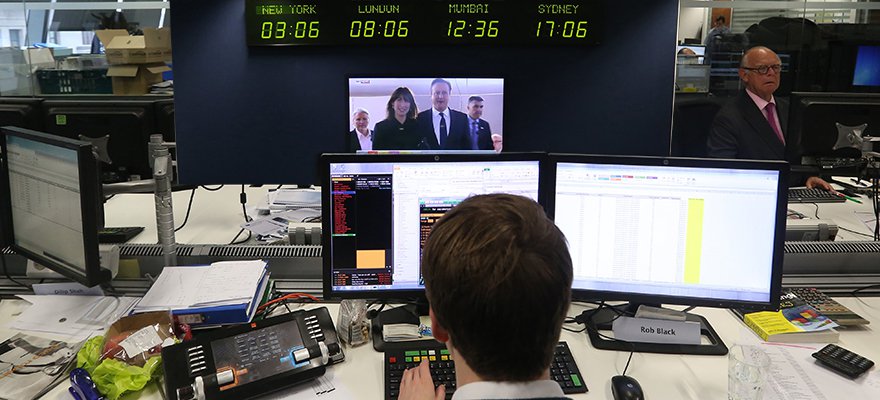Regulations in the Russian Forex exchange (FX) market, which began a year ago, have led us to contemplate which regions to explore next if the Russian market becomes unprofitable. Originally, the Russian Forex Market Act originally came into force on January 1, 2016, however neither the existing infrastructure nor brokers themselves were prepared for this moment.
Seeking a Way Out
[gptAdvertisement]
Following the passage of the Act, market participants were ultimately hoping for a reprieve, though this did not happen. Rather, preparations for market Regulation progressed in real-time, and companies ultimately received the needed time to decide what to do next, though they were under a tremendous amount of pressure to move quickly.
To unlock the Asian market, register now to the iFX EXPO in Hong Kong.
While some brokers simply pursued licenses, others instead opted to wait for more complete information about the settling of the regulatory framework, and in particular, the development of the whole regulatory system with regard to retrieving a license.
Still, other Russian units groups decided to remain providing services to Russian customers via a parent company, while others simply altered nothing with their strategy and instead intensified their search for new markets, under the assumption that the Russian market would be closed for them in the near future.
To date, the work of foreign forex dealers is not prohibited by law, and the Central Bank of Russia has no pertinent solution to deal with entities that offer online services to Russian customers. This was confirmed by the first deputy chairman of the Central Bank Sergey Shvetsov at the end of 2016.
However, the absence of a Russian license can greatly reduce the possibility of advertising in the market. Companies also have a fear that in an attempt to limit the ability to work with foreign forex brokers, citizens may be prohibited for payment transactions in their favor. In general, financial companies in Russia have enough reasons to look towards new regions.
Tens of Millions of Customers
As the experience of those who have already engaged in territorial expansion has showed, there are not a large number of attractive regions left in the forex world. According to most companies, one of the most interesting and enticing regions remaining is Southeast Asia, given its massive population and strong potential for growth.
In Indonesia alone there are 257.5 million people, with another 31.5 million in Malaysia, 55 million in Myanmar, and 70 million in Thailand, etc. These numbers are impressive, as there are tens of millions of potential customers in an untapped market for FX.
Indonesia is at the forefront of Russian expansion, as its economy during the last 10 years has been in the state of transition. It was accompanied by the rapid growth of activity in the financial markets. Russian brokers originally made inroads with the country as far back as 2003.
Among the most well known companies were InstaForex, FXOpen, MasterForex, Exness, Forex4you, FBS, Alpari. These groups opened offices, while others worked via affiliate programs with a local IB. The country has since become a popular hub for FX, while Indonesia is also starting to entice incoming brokers looking to expand.
However, there are lots of its problems and setbacks to this expansion, especially in this region. Often the first wave of brokers that enter into a given market find that it is not always ready for them. For example, the local regulator BABEPPTI almost ‘killed’ the local brokers market, prohibiting the issuance of licenses in 2012 for all companies regardless of the country.
Beyond this, to launch an office in this region is also becoming increasingly difficult. Barriers of entry and culture as well as the peculiarities of local mentality not always clear to residents of other countries, as the specific procedures of online and offline activities and the eternal race for bonuses is a strictly foreign concept in many regions of the world.
Markets for Years to Come
Moreover, companies have also tried to develop businesses in Thailand, Malaysia, and Vietnam, as well as the more developed Singapore, however all of these endeavors are met with varied levels of success. It is important to understand that almost all Southeast Asian countries do not allow foreign companies to operate in their territory. There are several requirements that must be met to carry out activities legally.
In addition, while planning the activities, it is worth reconciling high fees, the difficulty or outright inability to acquire a license, and the severity of a respective country’s laws. Of course it is important to explore new regions in the current FX environment, though it is also important to develop a secure the presence in a given country, a process that seldom happens overnight.
Too many brokers have made a quick splash in a new market only to fade into oblivion shortly after. Southeast Asia is not the only region that is being eyed by Russian companies. There are also other regions of note in Asia, namely China and Japan. Still, others prefer to open businesses in Africa or Latin America (LATAM). Ultimately each region provides its own unique set of challenges for success.
This article was written by Valentina Drofa, CEO of Drofa Communications Agency.






















